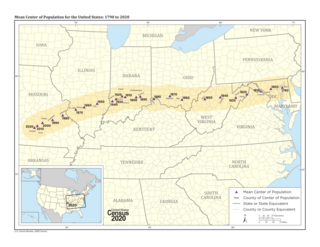
The Southern United States, sometimes Dixie, also referred to as the Southern States, the American South, the Southland, Dixieland, or simply the South, is a geographic and cultural region of the United States of America. It is between the Atlantic Ocean and the Western United States, with the Midwestern and Northeastern United States to its north and the Gulf of Mexico and Mexico to its south.
Howell Hiram Raines is an American journalist, editor, and writer. He was executive editor of The New York Times from 2001 until he left in 2003 in the wake of the scandal related to reporting by Jayson Blair. In 2008, Raines became a contributing editor for Condé Nast Portfolio, writing the magazine's media column. After beginning his journalism career working for Southern newspapers, he joined The Times in 1978, as a national correspondent based in Atlanta. His positions included political correspondent and bureau chief in Atlanta and Washington, DC, before joining the New York City staff in 1993.

Harrison Evans Salisbury, was an American journalist and the first regular New York Times correspondent in Moscow after World War II.

Howard Waring French is an American journalist, author, and photographer, as well as professor since 2008 at the Columbia University Graduate School of Journalism. Prior to re-entering academia, he was a longtime foreign correspondent and senior writer with The New York Times.
Bill Kovach is an American journalist, former Washington bureau chief of The New York Times, former editor of the Atlanta Journal-Constitution, and co-author of the book The Elements of Journalism: What Newspeople Should Know and The Public Should Expect.
James Barrett Yardley is an American journalist.

Christopher Swift Dickey was an American journalist, author, and news editor. He was the Paris-based world news editor for The Daily Beast. He authored seven books, including Our Man in Charleston: Britain's Secret Agent in the Civil War South (2015); Securing the City: Inside America's Best Counterterror Force – the NYPD (2009), and a memoir, Summer of Deliverance (1998), about his father, the poet/novelist James Dickey.
Eugene Leslie Roberts Jr. is an American journalist and professor of journalism. He has been a national editor of The New York Times, executive editor of The Philadelphia Inquirer from 1972 to 1990, and managing editor of The New York Times from 1994 to 1997. Roberts is most known for presiding over The Inquirer's "Golden Age", a time in which the newspaper was given increased freedom and resources, won 17 Pulitzer Prizes in 18 years, displaced The Philadelphia Bulletin as the city's "paper of record", and was considered to be Knight Ridder's crown jewel as a profitable enterprise and an influential regional paper.

Peter Eleftherios Baker is an American journalist and author. He is the chief White House correspondent for The New York Times and a political analyst for MSNBC, and was previously a reporter for The Washington Post for 20 years. Baker has covered five presidencies, from Bill Clinton through Joe Biden.

In the culture of the United States, the idea of Southernization came from the observation that Southern values and beliefs had become more central to political success, reaching an apogee in the 1990s, with a Democratic President and Vice President from the South and Congressional leaders in both parties being from the South. Some commentators said that Southern values seemed increasingly important in national elections through the early 21st century. American journalists in the late 2000s used the term "Southernization" to describe the political and cultural effects.

Seymour Topping was an American journalist best known for his work as a foreign correspondent covering wars in China, Korea, Vietnam, Laos, and Cambodia, and the Cold War in Europe. From 1969 to 1986, he was the second senior-most editor at The New York Times. At the time of his death, he was the San Paolo Professor Emeritus of International Journalism at Columbia University, where he also served as administrator of the Pulitzer Prizes from 1993 to 2002.
William Austin "Bill" Emerson Jr. was an American journalist who covered the Civil Rights Movement as Newsweek's first bureau chief assigned to cover the Southern United States and was later editor in chief of The Saturday Evening Post.

Kevin Merida is an American journalist and author. He formerly served as executive editor at the Los Angeles Times, where he oversaw and coordinated all news gathering operations, including city and national desks, Sports and Features departments, Times Community News and Los Angeles Times en Español.

Nick Chiles is an American Pulitzer Prize-winning journalist and author of 20 books. He writes primarily about African-American life and culture.
Sharon Kay Herbaugh was an American journalist and war correspondent for the Associated Press. She was the Associated Press bureau chief in Islamabad, Pakistan, at the time of her death. Herbaugh was killed while on an assignment when she was traveling with 14 other people, including freelance journalist Natasha Singh and translator Mohammad Rafie, and their helicopter crashed into the side of a mountain near Pul-e Khomri, north of Kabul. Aid workers recovered the bodies from a ravine hours after the crash. The accident cause was later deemed engine failure. Herbaugh was the AP's first female bureau chief to be killed while on assignment for the Associated Press. She remained the AP's only female journalist to be killed in the line of duty until the 2014 death of Pulitzer Prize-winning photojournalist Anja Niedringhaus, who was shot and killed while covering the presidential elections in Afghanistan.

Myrta Lockett Avary was an American white supremacist writer and journalist. Her books include Dixie After the War (1906), The Recollections of Alexander H. Stephens (1910) and Uncle Remus and the Wren's Nest (1913). She died on February 14, 1946, in Atlanta.

Julie Hirschfeld Davis is an American journalist. She is currently the congressional editor for The New York Times and a political analyst for CNN. She was previously a White House correspondent.
Hugh David Scott Greenway is an American journalist who has worked as a foreign affairs correspondent for Time Life, The Washington Post, and The Boston Globe. Greenway has covered conflicts in Vietnam, Laos, Cambodia, Afghanistan, Lebanon, Iraq, Pakistan, Burma, El Salvador, Nicaragua, Bosnia, and Croatia. His writing has also appeared in The New York Times, The New Yorker, The New York Review of Books, The Atlantic, the Columbia Journalism Review, and la Repubblica. Greenway is currently a columnist for Foreign Affairs and a member of the Council on Foreign Relations.
Brian Martin Rosenthal is an American journalist. He is currently an investigative reporter at The New York Times and the President of the Investigative Reporters and Editors (IRE), the largest network of investigative journalists in the world.
Harold Strong Latham was an American editor and publishing executive. He was editor-in-chief of Macmillan Inc., where he discovered and edited the works of notable writers including Margaret Mitchell and James Michener.









